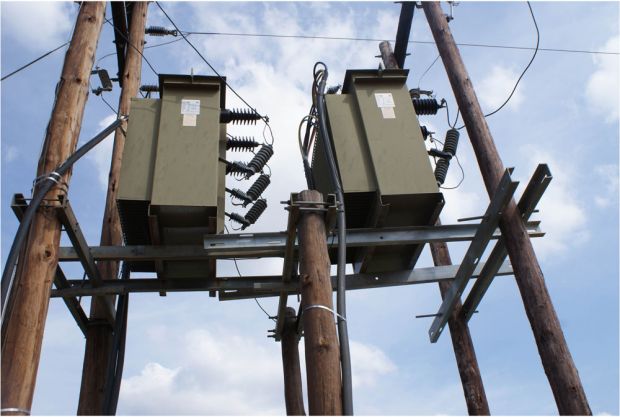LUCAS LEDWABA
THE Eastern Cape High Court has cracked the whip on a local municipality that owes power utility Eskom an estimated R128 million in unpaid services.
The ruling by the Grahamstown division of the high court follows action brought against the Inxuba Yethemba Municipality, which incorporates the historic town of Cradock and Middelburg.
In June last year, the Cradock Business Forum, Middelburg Ratepayers Association and Cradock Ratepayers Association filed an application against Eskom, the National Energy Regulator and the Inxuba Yethemba Municipality, its executive mayor and municipal manager, MEC for Co-operative Governance and Traditional Affairs in the Eastern Cape and the Minister for Co-operative Governance and Traditional Affairs.
The applicants wanted the court to compel Eskom and the municipality to “take every reasonable effort to settle the dispute between them, including exhausting all other remedies to resolve the aforesaid dispute in terms of the Intergovernmental Relations Framework Act before the interruption of electricity supply by Eskom to the municipality as a result of the municipality’s default to pay.
The applicants also wanted the court to order that the municipality must pay within three days “all outstanding amounts due to Eskom for the supply of electricity and that Eskom must thereafter supply electricity to the municipality in the ordinary course on an interrupted basis.”
The trio of applicants also wanted Eskom and the municipality to agree to a payment plan within seven days and that Inxuba Yethemba municipality comply with the terms of that payment plan and deviate therefrom only with the leave of the court.
Furthermore, the applicants asked the court that it compel the municipality to ensure that all payments received by it in respect of electricity at Cradock, be separated from the payments it received in respect of electricity at Middelburg; and that portion of the equitable share for electricity be ring-fenced for those two towns for payment to Eskom for electricity usage.
However, Eskom and Inxuba Yethemba municipality opposed the application.
The matter was initially postponed on three occasions to allow the municipality to authorise a payment plan which had been devised by Eskom and the municipality’s lawyers.
In the June 17 ruling, Judge GH Bloem ordered the municipality to pay Eskom R127 974 276.27 in terms of payment schedule approved by the court.
Bloem ordered the municipality to keep separate financial statements, including a balance sheet of its electricity reticulation business as is envisaged under certain sections of the Electricity Regulation Act, 2006.
In terms of the payment schedule, Inxuba Yethemba should make payments of R600 000 and R300 000 on or before 31 August.
Such payments should be made monthly until 31 December 2021.
Bloem ordered that the first sum of the monthly payment [R600 000] is in respect of Middelburg while the second sum [R300 000] is in respect of Cradock.
The judgment could have dire consequences on municipalities that are indebted to the power utility which has said it’s owed over R19 billion in unpaid services.
Last year the parliamentary Standing Committee on Public Accounts (Scopa) heard from Eskom that municipal debt to the entity had risen from R9.8bn in February 2017 to R19.9bn in October 2019 and that between March and September last year, had increased by R6bn.
In a far-reaching judgment that will force the Inxuba Yethemba to be more transparent, Bloem also ordered that “the municipality’s financial statements disclose on a monthly basis, revenue received in respect of the supply of electricity and the extent to which such revenue is appropriated for payment of its current account with Eskom” and its obligation in terms of the monthly payments to effect payment for arrears.
He also ordered the municipality to effect proper metering of its electricity supply; to effect proper billing in respect of metered electricity usage; update and service its reticulation system and to comply with the requirements of its licence and to reduce the incidents of theft of electricity.
(Compiled by Inside Metros staff)

